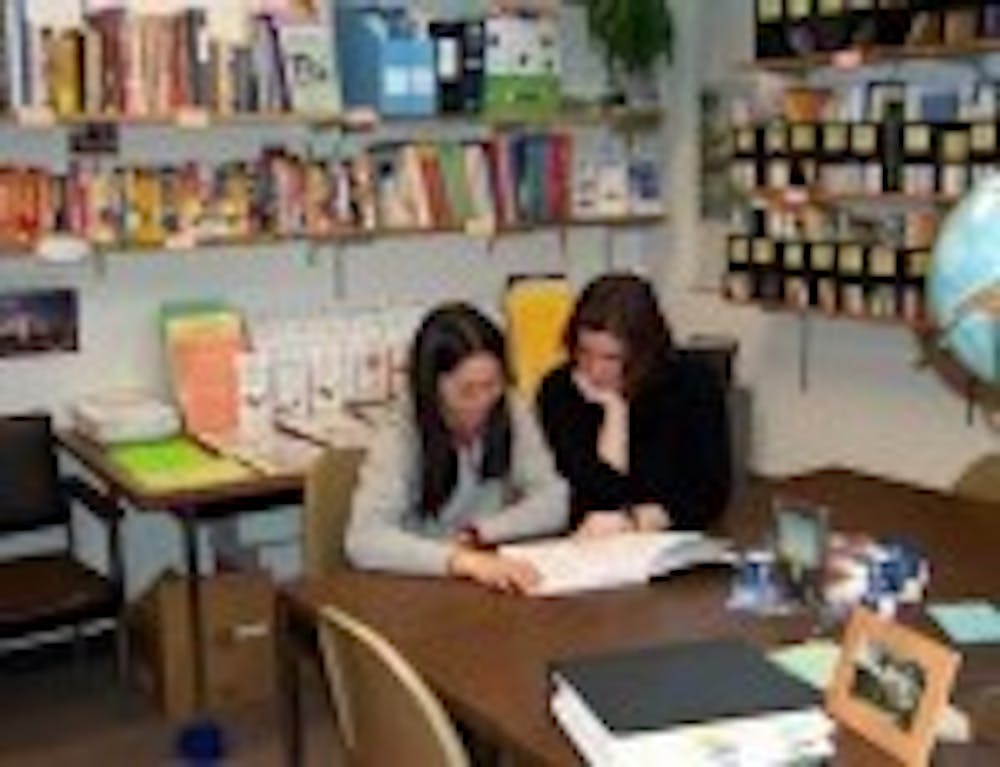There is an old saying in the real estate business - It's all about location, location, location. The same could be said for UB's study abroad program, with one small addendum: It's all about location and options, options, options.
UB currently offers over 50 programs in 31 countries on the six habitable continents for students who desire to take their studies to another country. But for those still unsatisfied with the amount of choices, the SUNY system provides an international buffet of over 250 other study abroad programs.
Even with all these options, Director of the Study Abroad Program Sandra Flash reported that less than a tenth of all UB students take advantage of the program, although the numbers are increasing.
"In 2003, 7 percent of undergraduate students have participated in the program. We hope to double that number in the next five years," she said.
"I actually wanted to go to Italy this summer, but (UB) didn't have a program to Italy," said Nathalia Fotine, a junior double majoring in Italian and International Studies. "I recently started considering going through another school. I'm actually looking forward to it."
Flash said students give many reasons for not considering the program. She said common misconceptions range from the belief that studying abroad will result in a later graduation date to a concern over what kind of hole the excursion will burn into students' wallets.
Kristen Hunger, a senior English major, said she wishes she had taken advantage of the program before graduating, but said she does not know when it would have fit into her schedule.
"I think it would have been cool to study Shakespeare where he wrote and maybe take a class in American history to get their side of the story," she said.
Flash, however, said the programs do not always lead to a later graduation date.
"Eighty percent of UB students have no delay in graduation," Flash said.
Of the other 20 percent, Flash said most know their graduation will be delayed and decide the benefits outweigh the cost of another semester or year at UB.
The unknown price tag, however, often discourages students from even browsing a brochure.
"You are registered with UB for the same tuition. The cost of the program is comparable to studying on campus," Flash said.
Sarah Watson, a graduate student with a focus in library science and who works in the Study Abroad office, said she hopes to return to London, where she studied as an undergraduate. For her, the benefits of traveling far overshadow the loans she is willing to accrue.
"The great thing about studying abroad is that you're no longer a tourist. The place becomes your home and people start asking you for directions," said Watson.
Federal and state financial aid is also available to use for study abroad, and scholarships are available to make the program more affordable.
Even without the issues of money and time, some students feel that language creates an impassable roadblock. But whether students can parlez fran?\0xA4ais, sprechen Sie Deutsches, or still struggle with the Queen's English, Flash said difficulties with language are not insurmountable.
"You can go to Korea University in Seoul and take math courses in English," she said. "There is definitely not a pre-requisite in language for a lot of the programs."
Though the first months in a new country can be a difficult adjustment, Flash said those who return due to homesickness are in the "wild minority."
Watson recalled the first months of living an ocean away from home.
"You start fitting in and forget about being homesick. You get used to the food, the people, the accent. ... It's all about making friends," she said. "Now I have friends all over the world and in the U.S."
Barrie Marsh, a junior from Sheffield, England, is a study abroad student at UB. He said he chose UB out of about 20 universities for its chemistry program.
"To begin with it was a bit of a culture shock. It was different from what I'm used to. The campus is a lot bigger. It's a lot more work intensive; a lot of little things. You're probably used to classes at 8 a.m. or 9 at night, at home it's nine to five," he said.
Marsh also said the residence halls here are much louder than in England.
"I'm comfortable now, the first month was really hard, but I've settled into a routine. The culture shock was a factor, the home sickness - you just miss things you take for granted back home," Marsh said.
Studying abroad may not only aid in gaining international chums. According to Flash, a semester overseas looks good on a resume, as well.
"It immediately sets you apart. We've had alumni say that in interviews their time abroad was really focused on," said Flash.
For more information on study abroad options, students can attend the Study Abroad Fair on Tuesday, Feb. 18, from 11:30 a.m. to 1 p.m. in the Student Union Social Hall or stop by Talbert 210.





